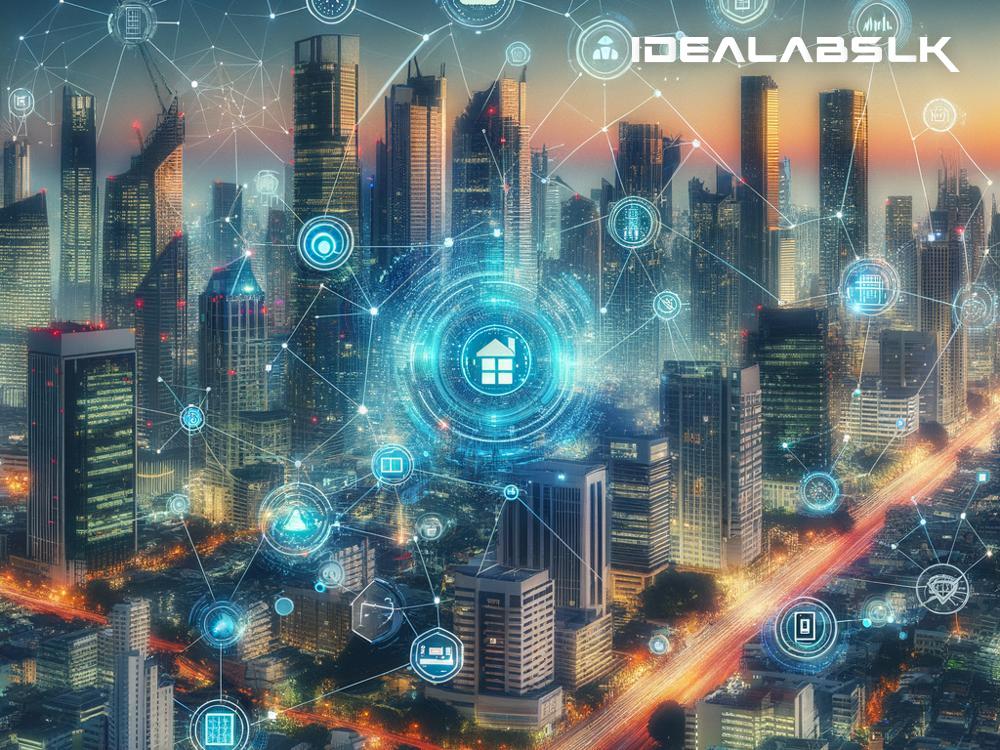Blockchain and AI in Real Estate: Transforming Property Investment
The real estate industry, traditionally seen as a slow adopter of technology, is currently undergoing a transformative phase. Two buzzwords you might have heard in relation to this change are Blockchain and Artificial Intelligence (AI). These technologies are not just altering how we view property investment but are reshaping the processes, making them more efficient, transparent, and accessible. Let's dive into how Blockchain and AI are disrupting the real estate market.
Understanding Blockchain and AI
First, let's break down these concepts. Blockchain is a digital ledger technology that securely records transactions across multiple computers. This means that once a record has been added to the chain, it is nearly impossible to change, making fraudulent activities difficult. Artificial Intelligence (AI), on the other hand, refers to computer systems that mimic human intelligence, performing tasks from recognizing speech to making decisions.
The Impact of Blockchain in Real Estate
Blockchain is revolutionizing real estate in several ways:
-
Smart Contracts: These are self-executing contracts where the terms are directly written into code. In real estate, smart contracts can automate and streamline the buying and selling process, reducing the need for intermediaries, and consequently, the associated costs and time delays.
-
Tokenization: This involves converting real estate assets into digital tokens on the blockchain. Imagine owning a "piece" of a property the same way you own shares of a company. This lowers the barrier to entry, allowing more people to invest in real estate with smaller amounts of money.
-
Enhanced Transparency and Security: Blockchain's transparent and secure nature restores people's faith in the real estate transaction process. Every transaction is recorded on a ledger that is both immutable and accessible, reducing the chances of fraud and errors.
AI's Role in Redefining Property Investment
AI, with its ability to process and analyze vast amounts of data, is equally transformative:
-
Market Analysis and Prediction: AI can analyze market trends, predict property values, and identify investment opportunities much more accurately and quickly than humanly possible. This gives investors insights that can guide them to make informed decisions.
-
Personalized Recommendations: Just as Netflix recommends movies, AI can suggest properties to potential buyers or renters based on their preferences, budget, and past behavior. This not only improves the customer experience but also speeds up the matching process between property and buyer/renter.
-
Operational Efficiency: From property management to facilitating virtual tours, AI can automate repetitive tasks, saving time and money. AI-powered chatbots can provide instant customer service, while machine learning algorithms can help in predictive maintenance of properties, addressing issues before they escalate.
The Synergy Between Blockchain and AI
While Blockchain and AI are powerful on their own, their real potential is unlocked when they work together. Blockchain can secure the data generated by AI, making it reliable for important decisions, whereas AI can analyze the data on the blockchain to uncover insights and improve efficiency. This synergy can lead to more intelligent, transparent, and efficient real estate transactions and management.
Bridging Challenges
Despite the promising benefits, integrating Blockchain and AI into real estate isn't without challenges. The adoption requires significant changes in regulations, infrastructures, and mindsets. Concerns around privacy, data security, and the digital divide need to be addressed. Moreover, the technical complexity and the need for substantial investment can be deterrents for smaller players.
The Future Outlook
The journey of Blockchain and AI in real estate is just beginning. As technology progresses and stakeholders become more comfortable with digital transactions and AI-driven decisions, we'll see a more widespread adoption. This could democratize property investment, making it more accessible to the average person and not just the domain of the wealthy or large corporations. The future of real estate looks to be increasingly digital, data-driven, and decentralized, presenting exciting opportunities for innovation and investment.
Conclusion
Blockchain and AI are disrupting the traditional real estate industry by making transactions more secure, transparent, and efficient and by enabling smarter investment decisions. As these technologies continue to evolve and integrate, we can expect a real estate landscape that is more accessible, less prone to fraud, and aligned with the digital age. The road ahead is paved with challenges, but the potential benefits for property investment are undeniable. Welcome to the future of real estate, where technology leads the way in building a more inclusive and efficient market.

